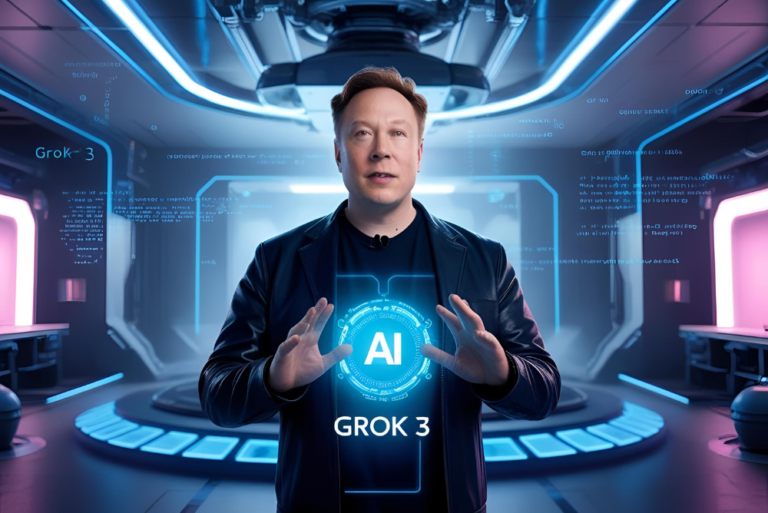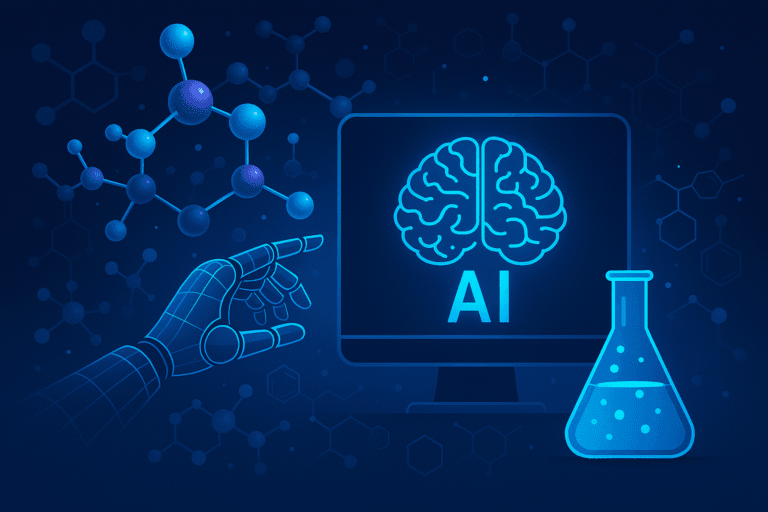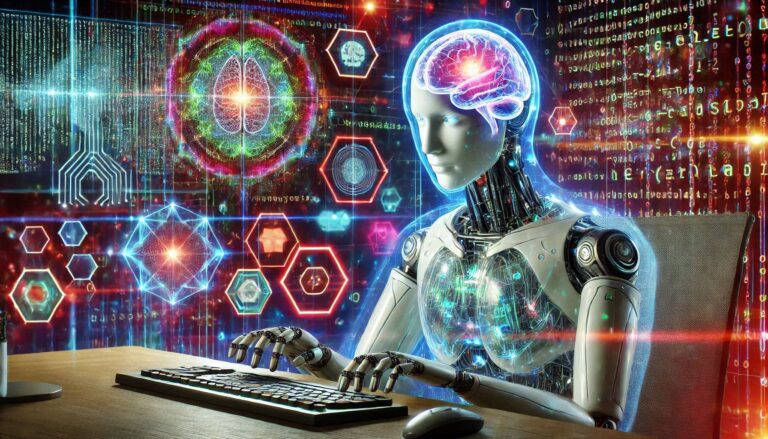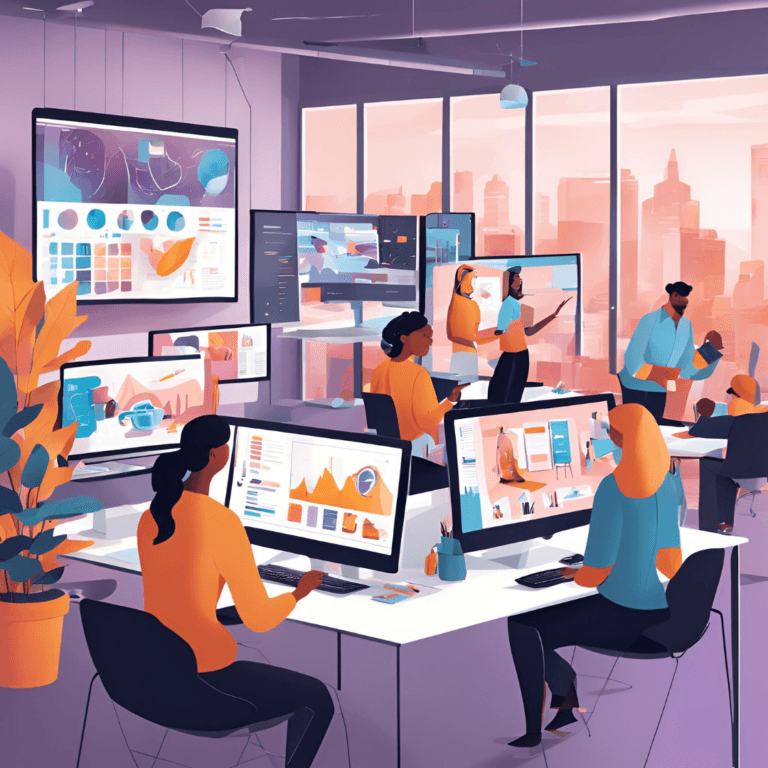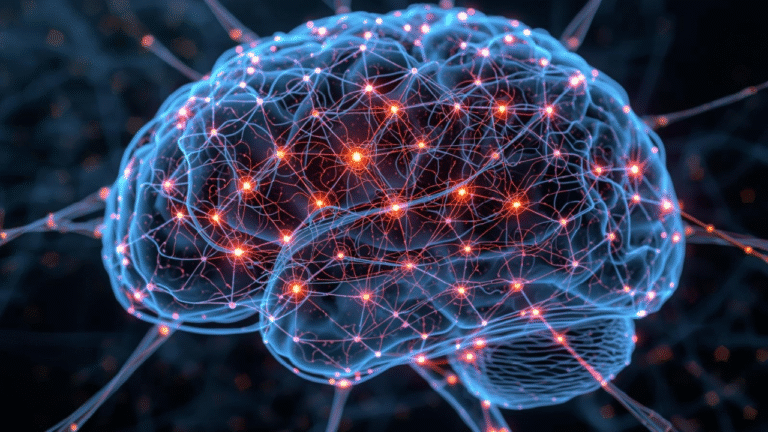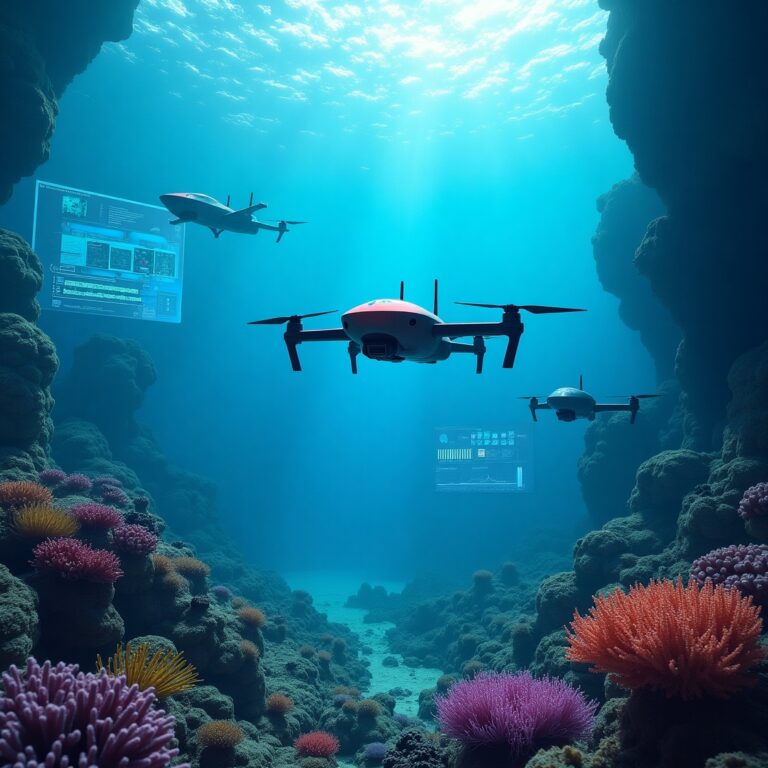Artificial Intelligence (AI) is no longer a futuristic concept; it is deeply embedded in our daily lives, transforming how we think, learn, and interact with information. From AI and human thinking to its cognitive impact, the technology is reshaping human cognition in unprecedented ways. However, this transformation comes with significant concerns. Are we becoming smarter, or is AI dependency making us mentally passive?
The integration of AI into education, workplaces, and personal lives has sparked debates about its long-term effects on human intelligence. While AI offers tools for efficiency and problem-solving, there is growing evidence that over-reliance on these systems may erode critical thinking and decision-making skills. This blog explores whether AI enhances or undermines human intelligence, focusing on its impact on technology on the brain and the broader implications for society.
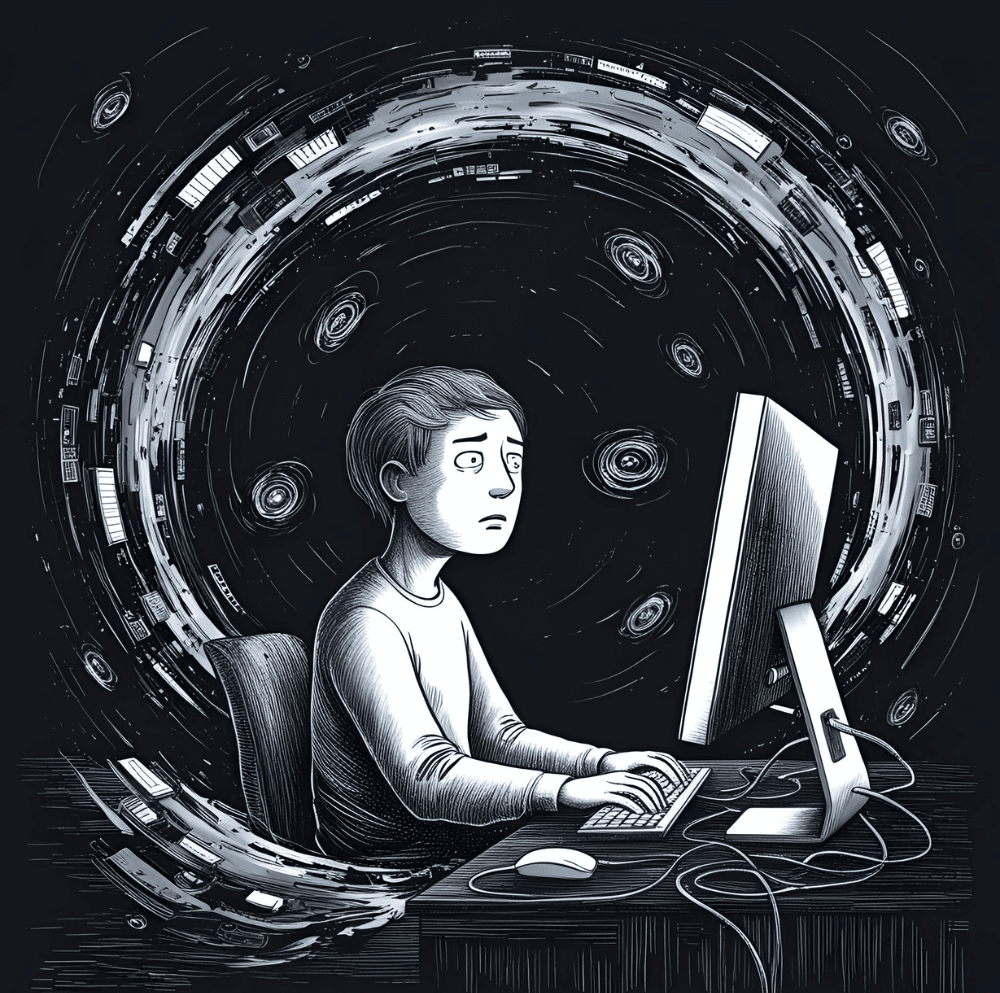
Introduction: The Growing Influence of AI on Human Cognition
Artificial Intelligence has become a cornerstone of modern life, influencing everything from how we search for information to how we make decisions. The cognitive impact of AI is profound, as it alters the way we process information, solve problems, and even perceive the world around us.
- AI and Human Thinking: AI systems, such as ChatGPT and other large language models, are designed to mimic human thought processes. They provide instant answers, generate content, and even offer recommendations, which can streamline tasks but also reduce the need for deep cognitive engagement.
- AI Dependency: As AI tools become more accessible, there is a growing tendency to rely on them for tasks that traditionally required critical thinking and creativity. This dependency raises questions about whether we are outsourcing our cognitive abilities to machines.
- Impact of Technology on the Brain: Neuroscience research suggests that prolonged reliance on technology can alter brain function. For example, the constant use of GPS has been shown to reduce spatial memory. Similarly, over-reliance on AI could lead to a decline in critical thinking and problem-solving skills.
The central question is whether AI is enhancing human intelligence or eroding it. While AI can augment our capabilities, it also poses risks by making us mentally passive. This blog delves into these issues, exploring the cognitive impact of AI and its implications for the future of human thought.
The Rise of AI Dependency: How It’s Reshaping Human Thought
What is AI Dependency?
AI dependency refers to the growing reliance on AI systems for decision-making, problem-solving, and even creative tasks. This phenomenon is reshaping human thought processes, often at the cost of independent thinking and cognitive engagement.
Examples of AI Dependency:
- Students and Education:
The use of AI-generated essays and tools like ChatGPT has become widespread among students. While these tools can save time, they also reduce the need for original analysis and critical thinking. A 2022 study by MIT found that students who relied heavily on AI for assignments scored lower on tests that required independent reasoning. This trend highlights the cognitive impact of AI on younger generations, who are growing up in a world where answers are just a click away.- Case Study: In one instance, a university professor reported that 30% of submitted essays showed signs of being AI-generated. These essays lacked depth and originality, raising concerns about the long-term effects of AI dependency on academic performance and intellectual development.
- Professionals and the Workplace:
In the workplace, AI tools are increasingly used for tasks such as data analysis, customer service, and even decision-making. While these tools can improve efficiency, they also risk lowering critical thinking skills. For example, professionals may accept AI-generated recommendations without question, leading to errors and diminished cognitive autonomy.- Example: A marketing team using AI to analyze consumer behavior might rely solely on the AI’s insights without questioning the underlying assumptions. This over-reliance can lead to flawed strategies and a lack of innovative thinking.
Historical Parallels:
The concerns surrounding AI dependency are not entirely new. Similar issues arose with earlier technologies like calculators and GPS.
- Calculators: When calculators became widely available, there were fears that they would undermine basic math skills. While calculators did change how we approach math, they also freed up mental resources for more complex problem-solving.
- GPS: The widespread use of GPS has been shown to reduce spatial memory and navigational skills. However, it has also made travel more efficient and accessible.
The key difference with AI is its pervasive influence. Unlike calculators or GPS, AI affects not just specific skills but the very way we process information and make decisions. This makes the cognitive impact of AI far more significant and far-reaching.
Psychological and Cognitive Effects:
- Reduced Critical Thinking: Over-reliance on AI can lead to a decline in critical thinking skills. When AI provides ready-made answers, there is less incentive to engage in deep analysis or question assumptions.
- Cognitive Offloading: The tendency to offload cognitive tasks to AI can lead to “digital amnesia,” where we forget information because we know it can be easily retrieved. This phenomenon is similar to how we no longer memorize phone numbers because they are stored in our smartphones.
- Impact on Creativity: While AI can assist with creative tasks, such as generating art or writing, it may also stifle human creativity by providing pre-packaged solutions. This raises questions about the role of human ingenuity in a world dominated by AI.
The Double-Edged Sword:
AI is a double-edged sword when it comes to human cognition. On one hand, it can enhance our capabilities by providing tools for efficiency and problem-solving. On the other hand, it risks making us mentally passive by reducing the need for independent thought and creativity.
The Broader Implications of AI on Society
The cognitive impact of AI extends beyond individual thinking patterns to affect society as a whole.
- Education Systems: Schools and universities must adapt to the rise of AI by teaching students how to use these tools responsibly while fostering critical thinking and creativity.
- Workforce Dynamics: As AI automates more tasks, there is a growing need for skills that cannot be easily replicated by machines, such as emotional intelligence and complex problem-solving.
- Ethical Considerations: The widespread use of AI raises ethical questions about privacy, bias, and the potential for misuse. These issues must be addressed to ensure that AI benefits society as a whole.

AI and Memory: The Rise of Digital Amnesia
Digital amnesia, also known as the “Google Effect,” refers to the phenomenon where individuals rely on technology to store and retrieve information, leading to reduced memory retention. This cognitive impact of AI is becoming increasingly prevalent as AI-driven tools like search engines, virtual assistants, and note-taking apps take over tasks that once required active mental engagement.
Examples of Digital Amnesia:
- The Google Effect:
Search engines like Google have fundamentally changed how we access and retain information. Studies show that people are more likely to remember where to find information online rather than the information itself. For example, instead of memorizing historical facts or mathematical formulas, individuals rely on quick searches to retrieve the data they need. This shift highlights the cognitive impact of AI on memory processes, as our brains adapt to prioritize information location over information retention. - AI-Driven Reminders and Apps:
Tools like AI-powered reminders, calendars, and note-taking apps (e.g., Evernote, Notion) have made it easier to organize our lives but have also weakened our ability to actively recall information. For instance, instead of remembering a friend’s birthday, we rely on automated reminders. While convenient, this reliance on AI can lead to a decline in memory strength and cognitive engagement.
Counterargument: Does AI Expand Access to Knowledge?
Proponents of AI argue that these tools expand access to knowledge by making information more accessible and reducing the cognitive load associated with memorization. For example, AI can instantly provide answers to complex questions, allowing individuals to focus on higher-order thinking and problem-solving. However, critics argue that this convenience comes at a cost. By outsourcing memory to technology, we risk weakening our brains’ natural ability to retain and process information, raising concerns about AI dependency and its long-term effects on cognition.
The Balance Between Convenience and Cognitive Health:
While AI undoubtedly enhances our access to information, it is essential to strike a balance. Engaging in activities that challenge memory, such as reading books, solving puzzles, or practicing mindfulness, can help mitigate the effects of digital amnesia. By understanding the cognitive impact of AI, we can use these tools responsibly without compromising our mental faculties.
AI and Critical Thinking: Enhancing or Diminishing Judgment?
The Role of AI in Critical Thinking:
AI has revolutionized how we approach problem-solving and decision-making by providing quick, data-driven answers. However, this convenience raises an important question: Does AI enhance or diminish our ability to think critically? The cognitive impact of AI on critical thinking is a double-edged sword, offering both opportunities and challenges.
The Risks of Over-Reliance on AI:
- Reduced Independent Thinking:
AI systems like ChatGPT and other decision-making tools provide instant solutions, reducing the need for individuals to engage in deep analysis or independent reasoning. For example, students using AI to write essays may skip the critical thinking process entirely, relying on pre-generated content instead of developing their own ideas. This trend highlights the potential for AI dependency to erode critical thinking skills. - Lack of Skepticism:
Studies show that people are less likely to question AI-generated answers, even when they are incorrect. This phenomenon, known as “automation bias,” occurs when individuals trust AI outputs without applying their own judgment. For instance, professionals using AI for data analysis may accept flawed conclusions if they fail to critically evaluate the results. - Bias Reinforcement:
AI systems reflect the biases present in the data they are trained on. Over-reliance on AI-driven decisions can perpetuate existing biases, as these systems often reflect the prejudices present in their training datasets. Without human oversight, this can lead to unfair or discriminatory outcomes.
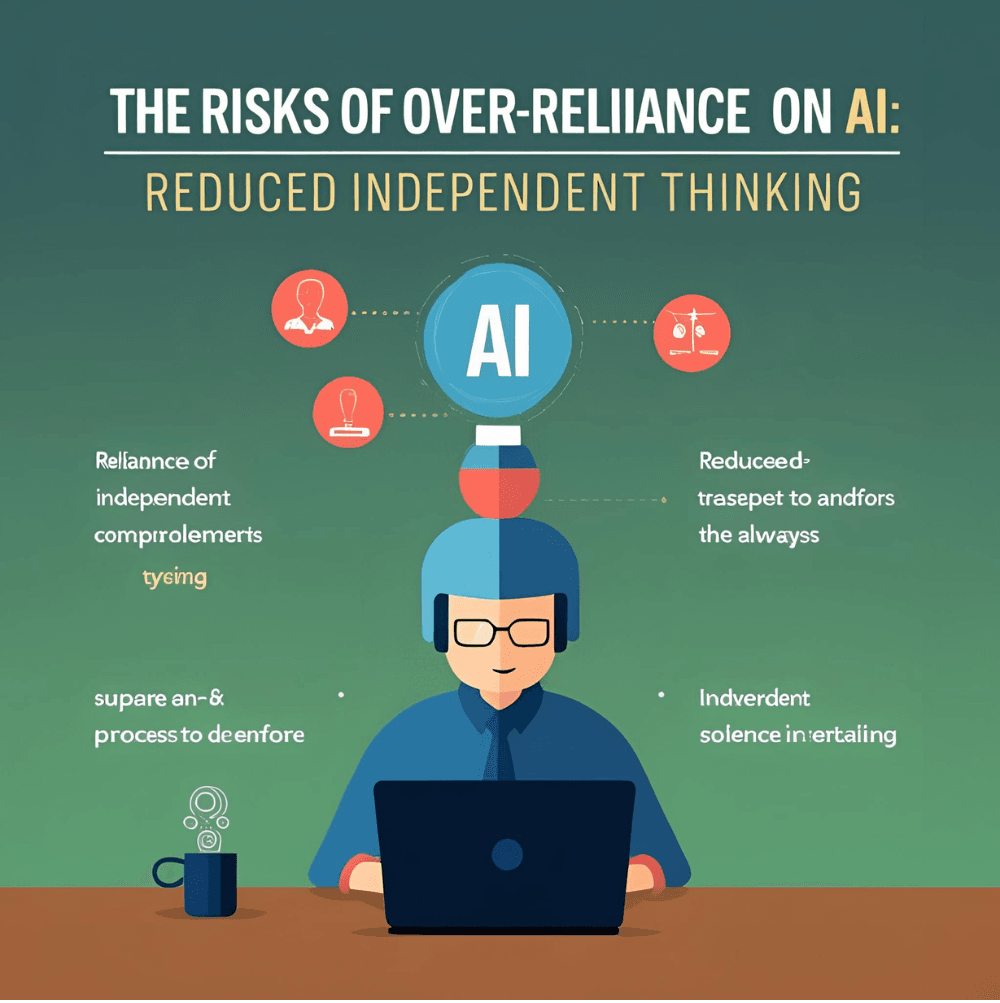
The Positive Impact of AI on Critical Thinking:
Despite these risks, AI can also enhance critical thinking when used appropriately.
- Data-Driven Decision-Making:
AI excels at processing vast amounts of data and identifying patterns that may not be immediately apparent to humans. This capability can support more informed decision-making, particularly in fields like healthcare, finance, and scientific research. For example, AI can analyze medical data to recommend treatment options, allowing doctors to make better-informed decisions. - Augmenting Human Judgment:
When used as a tool rather than a replacement, AI can augment human judgment by providing insights and recommendations that complement our own reasoning. For instance, AI can help identify potential risks in a business strategy, enabling leaders to make more balanced decisions.
The Importance of Human Oversight:
The key to harnessing the benefits of AI while mitigating its risks lies in maintaining human oversight. Critical thinking and skepticism remain essential, even in an AI-driven world. By questioning AI-generated outputs, evaluating their validity, and considering alternative perspectives, we can ensure that AI serves as a tool for empowerment rather than a substitute for independent thought.
AI’s Impact on Problem-Solving & Innovation
Artificial intelligence is revolutionizing how humans approach problem-solving and innovation. From medicine to engineering, AI-driven tools provide insights that were once impossible to obtain, enabling professionals to make more accurate and efficient decisions. However, this reliance on AI raises concerns about the cognitive impact of AI—if machines generate solutions for us, are we at risk of losing our ability to think critically and innovate independently?
AI as a Catalyst for Creativity and Innovation
AI-powered tools are already proving to be game changers in various industries:
- Medical field: A Johns Hopkins study found that surgeons using AI-assisted robotic systems made 27% fewer errors during complex procedures. AI helps doctors diagnose diseases earlier and with greater accuracy, significantly improving patient outcomes.
- Architecture and Engineering: AI enables the rapid design of sustainable buildings, reducing material waste and optimizing energy efficiency. Engineers use AI-driven simulations to test structures before they are built, increasing safety and reducing costs.
- Art and Music: AI-generated art and music have expanded creative possibilities, assisting human artists in composing symphonies, designing digital masterpieces, and even writing scripts.
The Potential Downside: Are We Losing Critical Thinking Skills?
While AI enhances problem-solving, there’s a growing concern about AI and human thinking. If AI provides ready-made solutions, will humans stop developing independent problem-solving abilities?
- A 2023 study by the University of California found that individuals who frequently relied on AI-generated content were 30% less likely to engage in deep analytical thinking compared to those who formulated solutions independently.
- Automation in industries like finance and customer service is leading to deskilling, where employees become dependent on AI-generated insights rather than their own expertise.
Finding the Right Balance: AI as an Assistive Tool, Not a Replacement
The key is using AI to enhance human intelligence rather than replace it. To maintain cognitive agility, professionals should:
- Use AI as a collaborative tool rather than a decision-making crutch.
- Engage in critical analysis of AI-generated insights rather than accepting them at face value.
- Invest in continuous learning to ensure AI complements, rather than replaces, human expertise.
By striking this balance, AI can augment innovation without diminishing human problem-solving skills.
The Effect of AI on Human Attention and Focus
AI-driven technology is fundamentally reshaping how we focus, process information, and engage with the world. While AI streamlines workflows and provides personalized recommendations, its ability to capture and sustain human attention—especially through social media and digital platforms—raises concerns about the cognitive impact of AI on concentration and mental endurance.
The Attention Crisis: AI is Shortening Human Focus
Studies indicate that AI-powered recommendation algorithms are rewiring human attention spans:
- A Microsoft study revealed that the average human attention span has dropped to just 8 seconds, partly due to AI-driven notifications, instant content, and algorithmic feeds. This is a significant decline from 12 seconds in the year 2000.
- AI-powered social media algorithms curate hyper-personalized feeds, causing individuals to jump from one piece of content to another, reinforcing fragmented attention.
The Dopamine Loop: How AI Reinforces Short-Term Thinking
AI-based recommendation engines manipulate dopamine-driven feedback loops to keep users engaged:
- Endless scrolling on platforms like Instagram and TikTok triggers the brain’s reward system, making people crave constant digital stimulation.
- Notifications and instant gratification from AI-driven platforms reduce deep focus, making it harder to engage in complex thinking and problem-solving.
A 2022 study from Harvard found that individuals exposed to constant AI-curated content for extended periods struggled with sustained attention and had difficulty processing long-form information.
Can AI Help Reverse Its Own Effects?
Interestingly, AI itself might offer a solution to the attention crisis:
- AI-driven mindfulness apps like Headspace and Calm use personalized algorithms to help users regain focus through meditation and cognitive training.
- AI-powered productivity tools like Freedom and RescueTime help users block distractions and track focus patterns, optimizing workflow efficiency.
To counteract the negative cognitive impact of AI, individuals should:
- Limit AI-driven distractions by turning off non-essential notifications.
- Use AI-based productivity tools to improve focus instead of harm it.
- Engage in deep work sessions by consciously setting aside time to work without AI interruptions.
AI’s influence on human attention is undeniable, but with mindful usage, it can be leveraged to enhance focus rather than diminish it.
AI’s Role in Emotional Intelligence and Human Interaction
Artificial Intelligence is transforming human communication and emotional intelligence, particularly through AI-driven chatbots, virtual assistants, and digital interactions. While these technologies enhance accessibility and efficiency, they may also weaken real-life communication skills by reducing direct human interaction.
How AI is Changing Human Communication
AI-powered tools like Siri, Alexa, and ChatGPT have made interactions seamless, but overreliance on these digital assistants can impact interpersonal skills:
- Reduced face-to-face conversations: A 2023 study from Stanford University found that Gen Z spends 50% less time engaging in real-life conversations than previous generations, partly due to their reliance on text-based and AI-mediated communication.
- Declining social intelligence: Frequent AI-based interactions can make it harder to read facial expressions, interpret emotions, or engage in deep conversations—skills essential for strong human relationships.
AI’s Role in Emotional Intelligence and Mental Health
AI is also being integrated into mental health support systems, offering real-time emotional recognition and assistance:
- AI therapy bots like Woebot and Wysa use natural language processing (NLP) to detect users’ emotions and offer personalized psychological support.
- Emotion detection AI: Advanced AI can analyze voice tone, facial expressions, and text patterns to gauge human emotions, assisting in fields like customer service and healthcare.
However, these developments raise ethical concerns:
- Does AI reduce real human empathy? If people start relying on AI for emotional support, will they become less empathetic toward real human struggles?
- Can AI truly understand emotions? Unlike humans, AI lacks lived experiences and genuine emotional depth, making its responses predictive rather than empathetic.
To balance AI and human thinking, experts recommend using AI to augment emotional intelligence rather than replace human interaction. This means leveraging AI for support but prioritizing real-life communication to maintain deep, meaningful relationships.
AI in Education: A Tool for Learning or an Obstacle?
AI is revolutionizing education by personalizing learning experiences, making knowledge more accessible, and enhancing student engagement. However, concerns are rising about AI’s potential to hinder independent thinking, creating a generation of students who rely on machines instead of developing critical problem-solving skills.
How AI is Enhancing Education
- AI-powered tutors and adaptive learning systems like Duolingo, Khan Academy, and Coursera analyze students’ progress and provide personalized lessons, improving efficiency and retention.
- Automated grading and feedback reduce the burden on teachers, allowing them to focus on interactive teaching and mentorship.
- AI-driven research assistants help students process vast amounts of information faster, making learning more efficient and accessible.
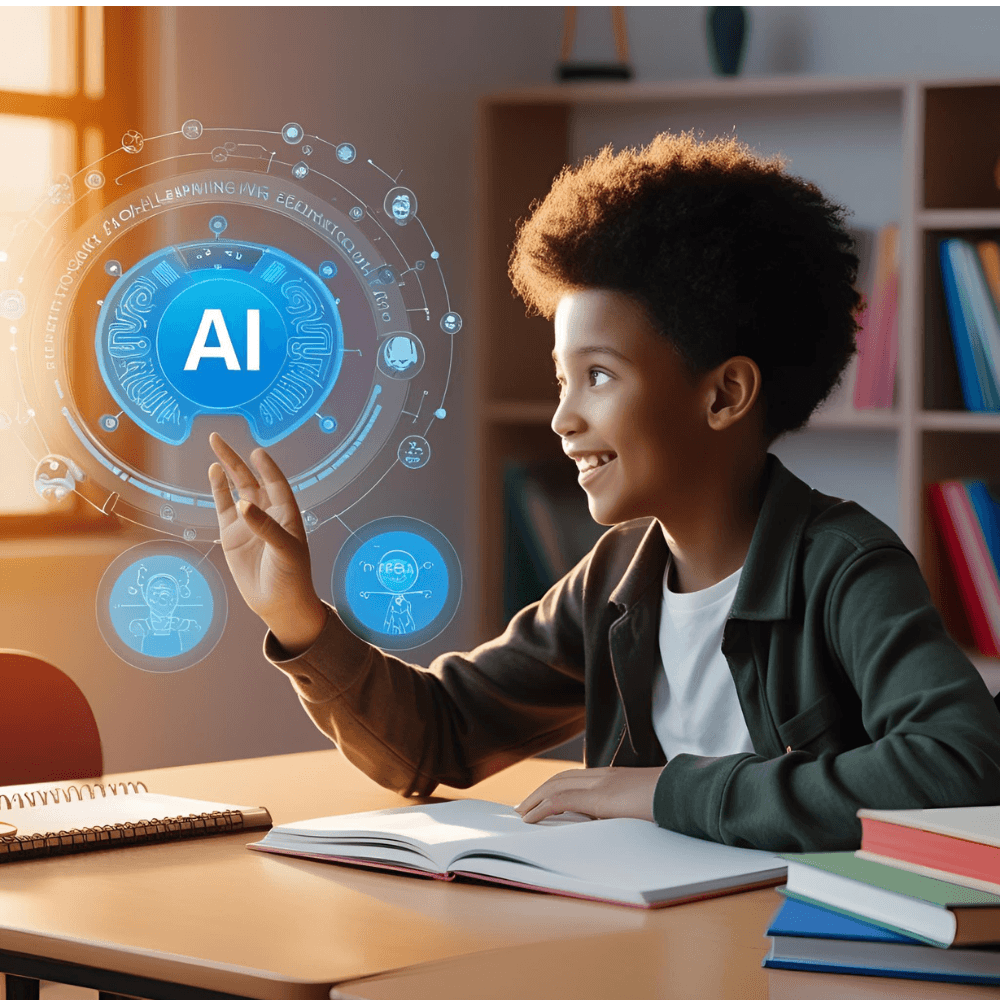
The Risks of AI Dependency in Students
Despite these benefits, AI’s increasing presence in education presents potential drawbacks:
- Passive learning behavior: A 2022 study by MIT found that students who relied on AI-powered learning assistants for homework scored lower in critical thinking tests compared to those who engaged in traditional problem-solving.
- Over-reliance on AI-generated content: Tools like ChatGPT and Grammarly can reduce a student’s ability to analyze and synthesize information independently.
- Risk of misinformation: AI algorithms are not infallible, and students who blindly trust AI-generated responses may absorb incorrect or biased information.
The Solution: Teaching AI Literacy in Schools
To ensure students benefit from AI without becoming overly dependent, educators are integrating AI literacy programs into curricula:
- Encouraging students to question AI outputs rather than accepting them as absolute truths.
- Balancing AI assistance with traditional learning methods, such as reading books and engaging in peer discussions.
- Teaching ethical AI use, helping students understand how AI models work and their limitations.
With the right approach, AI can serve as a powerful educational tool while preserving students’ critical thinking and problem-solving skills.
Finding the Balance: How to Use AI Without Losing Critical Thinking
As AI becomes more embedded in daily life, individuals must learn how to engage with AI responsibly—leveraging its advantages while ensuring it does not replace independent thought and decision-making.
Use AI as a Co-Pilot, Not a Pilot
AI should enhance human intelligence, not replace it. Practical strategies include:
- Using AI-powered tools for idea generation, not final decision-making.
- Cross-checking AI-generated information with human expertise and verified sources.
- Engaging in critical thinking exercises to analyze AI recommendations rather than accepting them passively.
Digital Detox and Mindful AI Use
Overexposure to AI-driven content can weaken focus and analytical skills. To counteract this:
- Set screen-free hours to encourage deep reading and problem-solving without AI assistance.
- Use AI selectively for productivity (e.g., summarizing information) but avoid overuse in everyday thinking.
- Engage in long-form learning (e.g., books, research papers) to maintain deep analytical skills.
Develop AI Literacy
Understanding how AI makes decisions can prevent blind trust and over-reliance:
- Learn about biases in AI algorithms and how they affect decision-making.
- Study AI ethics to understand its impact on society.
- Encourage fact-checking and alternative viewpoints rather than solely relying on AI-generated information.
By implementing these strategies, individuals can harness AI’s power while preserving independent thought and creativity.
Conclusion: The Future of AI and Human Thinking
Artificial intelligence is a double-edged sword—it has the potential to enhance cognitive abilities or diminish them, depending on how it is used.
Key Takeaways:
- AI is redefining human problem-solving, making processes more efficient while raising concerns about over-reliance on machines.
- AI-driven communication and education tools can be valuable but must be used responsibly to preserve critical thinking skills.
- The cognitive impact of AI depends on human awareness and engagement—those who actively question and analyze AI outputs will benefit the most.
Call to Action: How Should We Engage with AI?
To ensure AI remains a tool for progress rather than dependency, individuals should:
- Reflect on their own AI usage—are they using it as a thinking aid or a replacement for thinking?
- Develop AI literacy—learning how AI works ensures they question and challenge AI-generated information.
- Encourage ethical AI use—promoting transparency and responsible development of AI systems.
The future of AI and human thinking is not predetermined—it is shaped by how we choose to integrate AI into our lives. By using AI mindfully, we can maximize its benefits without losing our ability to think critically, innovate, and connect as humans.
Related Articles You May Find Interesting
If you enjoyed learning about Harnessing AI in Predicting Natural Disasters, you might also be interested in these articles:
- AI in Oceanography – Dive deeper into how AI is revolutionizing marine research, from deep-sea exploration to climate monitoring.
- AI in Everyday Life – Explore how artificial intelligence is shaping our daily routines, from smart assistants to automation.
- Agentic AI Systems – Learn about AI models that can operate autonomously and make intelligent decisions with minimal human input.
- AI in Wildlife Conservation – Discover how AI is being used to protect endangered species and monitor wildlife across the globe.
- Impact of Generative AI in Creative Industries – See how generative AI is transforming fields like art, music, and content creation.

